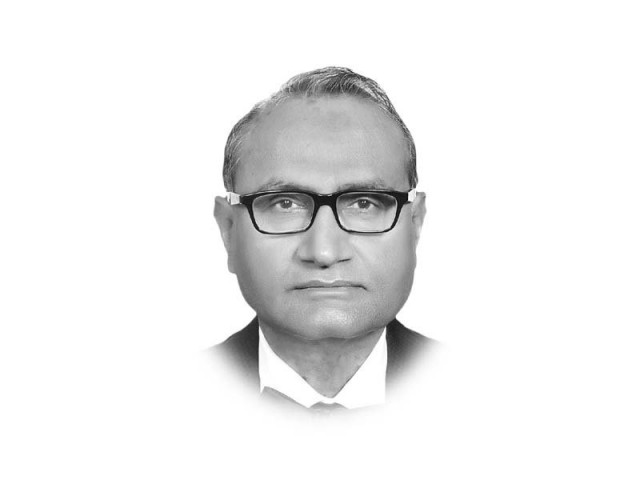Trumpicide
The number of Americans taking Trump seriously is declining by the day

pervez.tahir@tribune.com.pk
Pakistan’s narrative is built around its security concerns. We take Trump seriously because Trump takes India seriously. After the adoption of the General Assembly resolution against his revisionist action on Jerusalem, Trump had left no doubt that there would be consequences for the supporters of the resolution. India was among the supporters. But the consequential tweet is directed at Pakistan. What Trump has put crudely was also Obama’s oblique refrain. But India was not part of Obama’s strategy, as it is with Trump. His own military establishment knows that a ‘no more’ policy cannot succeed without an alternative logistics strategy. Attempts to develop a northern route did not succeed. By alienating Iran, Trump has killed the prospect of using Chabahar, a port developed with the help of India, unless he believes that he could aid and abet a ‘Persian spring’ for a regime change. The Iraq war in 2003 led to the globalisation of al Qaeda. The blood-thirsty ISIS was its off-shoot. It is now spreading its networks around the world. With the prospects of wars in Iraq and Syria coming to an end, a similar fallout is imminent. The theatre is shifting to Yemen. Saudi Arabia seeks Pakistan’s support, which has its own regional concerns.
The Pakistan-US relationship goes back a long way. Both had divergent objectives from day one. Pakistan joined the Cold War alliances, such as the Central Treaty Organisation and Southeast Asia Treaty Organisation to prepare for a military response to India, while the US objective was to contain the Soviet Union. Economic assistance was also sought essentially to strengthen the national power. A strong correlation existed between periods of high growth and inflows of economic assistance. Both stood by their separate strategic objectives when the chips were down in 1965 and 1971. The result was failure and the end of alliances. The success came when one partner, Pakistan, supported the objectives of the other partner in the Afghan war of the 1980s. It was not Pakistan’s war, but its support to the US led to the fall of the Soviet Union. The associated inflows of economic assistance helped achieve high GDP growth. Again the war on terror was not Pakistan’s war in the 2000s. It joined willy-nilly and enjoyed foreign-assisted growth once again. Hence, the charges of double-crossing. In 2010s, especially after the massacre at the Army Public School, the war on terror became Pakistan’s own war. But it has been a hard-sell abroad, despite enormous sacrifices in men and material. And this pre-dates Trump.
What Trump has done is to introduce India as a strategic partner, something unacceptable to Pakistan, despite a huge hole in the external accounts. The worst Pakistan can do will be an overreaction. It should not lose focus on dealing with terrorism at home, while ensuring a smooth political transition. An indigenous austerity policy affecting the rich more than the poor must be part of the transition. The next government will have to put in place a long-term plan of self-sustained growth and development.
Published in The Express Tribune, January 5th, 2018.
Like Opinion & Editorial on Facebook, follow @ETOpEd on Twitter to receive all updates on all our daily pieces.















COMMENTS
Comments are moderated and generally will be posted if they are on-topic and not abusive.
For more information, please see our Comments FAQ